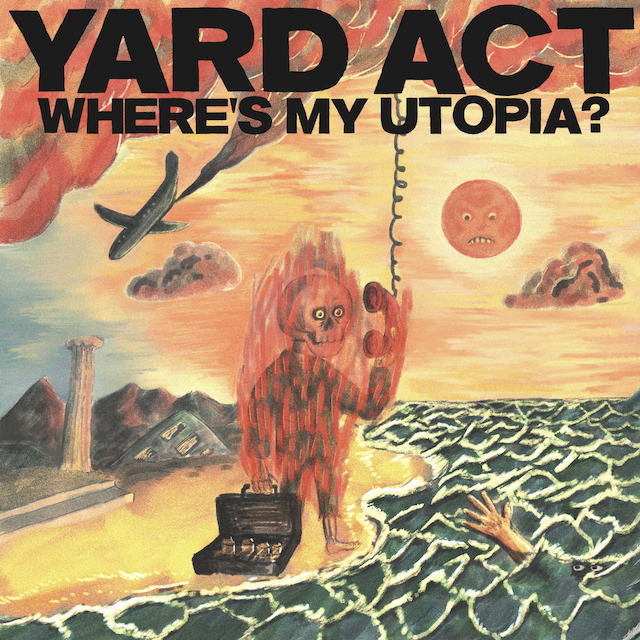The best popular music tunes into the zeitgeist. It can reflect cultural currents, encourage them, or enable the public to turn away and just party. At a time when the future of humanity feels more uncertain than at any time since the height of the Cold War, Yard Act, one of the most interesting British bands to emerge in recent years, play on the sense of doom around the corner, while laughing in its face.
The acclaimed band from Leeds, fronted by James Smith, who speaks the lyrics as much as he sings, come in a tradition of English bands – often from the North – who place cultural and political comment at the heart of a poetry that treads a fine line between irony, anger and fun. There's a self-awareness that goes back to the pop of the 1970’s, the coming-of-age that helped pop eat itself. With help, for this second album of theirs, of musically über-literate producer Remi Kabaka Jr, known for his excellent work with Gorillaz, the music draws on a multitude of styles, from Fela Kuti’s Afro-Beat to punk, chopping abruptly from one genre to another, keeping the audience on their toes. Driven by the clipped and energetic drums of Jay Russell on drums, Yard Act call for attention, and trade on shock.
The opening number, “An Illusion” is as knowing a track as any, on this rich and varied album. We've been sold the promise of a brave new world, and it’s not exactly on its way – at least this is what these disillusioned millennials proclaim with great verve. On “We Make Hits”, they take a blasé refusal to buy into consensus escapism one step further – and manage to produce a song with a perfect hook of a chorus, which shouts out commercial success, while simultaneously questioning the business that underpins it.
For all the sense of songs created on the edge of possible mass extinction, the lyrics also touch on more personal material – such as the nagging quality of guilt on “The Undertow” or the ever-presence of childhood memories evoked in “Fizzy Fish”.
There's perhaps rather too much spoken word – that very British take on rap, with roots in slam poetry rather than hip-hop, as the emotional possibilities of text rather than song are inevitably limited in tone and range. And yet, the clevernesss of it all – reminiscent at times, of (though not identical to) the near-perfection of the best of Steely Dan – saves the day. This music, while nearly being overburdened with irony, never ceases to surprise. The band and Kabaka use programming and digital techniques to good effect, and yet also include real rather than synthesised strings, knowing that the human touch provides a welcome antidote to what could feel close to being too polished.















Add comment